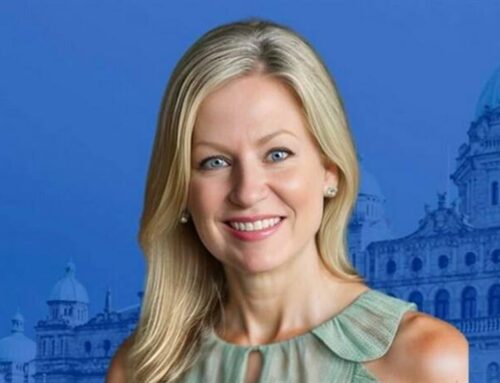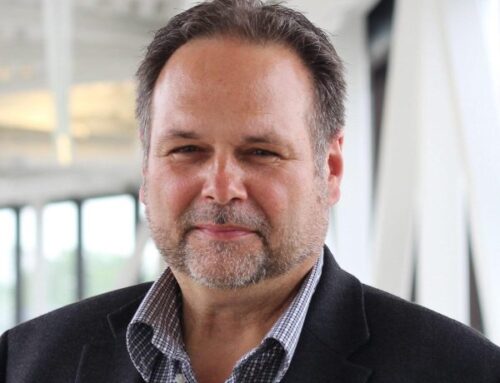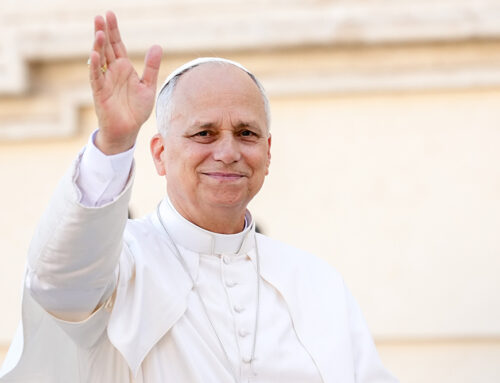
Scott Brockie was taken to the Ontario Human Rights Commission in the 1990s after his business refused to print homosexualist propaganda.
Perhaps the most obvious threat to the free exercise of religion is the infamous human rights commissions. The most famous assault on religious freedom and freedom of conscience is the case of Scott Brockie, owner of Imaging Excellence, who was convicted of “discriminatory conduct” in September 1999 by the Ontario Human Rights Commission for refusing to print materials for the Canadian Lesbian and Gay Archives in 1996 because of his religious beliefs. He was fined $5,000, even though he made it clear that he would serve clients with homosexual inclinations provided that their material does not advance homosexual activity. Religious groups noted that the decision made clear that there were limits on the toleration of religious beliefs.
In 2005, the British Columbia Human Rights Tribunal demanded that the Knights of Columbus pay damages to a lesbian couple for refusing to rent their hall to them in Port Coquitlam in 2003 for a wedding. When the Knights found out why the couple had rented the hall, they cancelled the contract, returned the deposit, and reimbursed the couple for the costs of renting a new hall as well as wedding invitations. Despite this, the couple had still made a successful complaint.
In 2008, a non-binding decision by the Quebec human rights commission barred prayers from city hall meetings in fear that praying would infringe neutrality and religious rights (of non-Christians). This was in response to two complainants from Saguenay where the mayor of the town, Jean Tremblay, refused to abide by the decision. “They think this contravenes human rights. I agree… some 20 people around the table want to pray and to prevent them doing so would infringe on their rights,” he told the

Calgary pastor Artus Pawlosski has been harassed for his street ministry, bringing Jesus to the poor and vulnerable.
But anti-Christian activity is not limited to the human rights commissions and tribunals. Sun News TV host and newspaper columnist Ezra Levant recently reported on the discriminatory treatment of Artur Pawlowski, the pastor of Calgary’s Street Church who ministers to the homeless and drug abusers, at the hands of Calgary city administration. Pawlowski decided to hold a Christian service in the public atrium of city hall and was promptly arrested by the orders of Mayor Naheed Nenshi. “Over the past six years, Pawlowski has literally been to court more than 70 times fighting against a series of tickets, charges and other fabricated penalties cooked up by City Hall – none of which was applied to Nenshi’s favourites in the Occupy movement,” Levant wrote in the Toronto Sun. An appeal judge even warned that Calgary’s treatment of Pawlowski was “precariously close to being excessive and an abuse of power”.
Moreover, in April 2010, Paula Celani, whose name was on a rental contract for two rooms in the La Maison du Brasseur complex owned by the city of Montreal, was fined $144 for allowing Mass to be said during the Catholic gathering. This was because she broke a by-law against “cultic” activity: “praying, singing religious songs or conducting religious celebrations.” Celani is fighting the fine.
This is hardly a new phenomenon. In 1998, Canada Christian College in Toronto, one of 13 Ontario Bible colleges, came dangerously close to being shut down by the Ontario Mike Harris government. The Ministry of Education led by education minister David Johnson introduced a policy requiring that Bible

Rocco Buttiglione was considered unfit for a European Commission job because he was a faithful Catholic who supported traditional marriage and opposed abortion.
It should come as no surprise that Christian broadcasters are also facing their own challenges. The internationally-aired Roman Catholic TV network, EWTN, was only allowed into Canada in 2001 as a Category Two channel, meaning cable companies are not obliged to offer it and viewers must subscribe to it. Meanwhile, NOW TV Christian channel in Fraser Valley, British Columbia (now CHNU) got Category One status, but was forced to broadcast 18 hours a week of programming devoted to other religions. “This is so typical of Canadian condescension to the Christian population, I could spit,” Herman Goodden wrote The London Free Press in 2001. “What other ‘interest group’ gets horsed around in this way?…Will PrideVision be hosting Heterosexual Family Nights with re-runs of Leave It to Beaver and Father Knows Best?” Goodden wondered. CTS, a Burlington, Ont.-based religious channel founded by 100 Huntley Street host David Mainse, was also obliged to provide multi-faith programming when it was approved in 1998.
In fact, the CRTC seems to prefer pornographic or pro-gay programming over anything Christian. It justified its 2008 approval of a TV porn channel, Northern Peaks, owing to the fact that 50 per cent of its content would be produced in Canada. In 2006, the CRTC approved a homosexual radio station in Toronto. Yet, in 2003, a Catholic radio station for the area was rejected. In 2008, two proposals for Christian radio stations in the Ottawa area were thrown out even though one of them had 780 letters of support. One of the two openings available was given to an adult soft music station with only 77 letters of support.

Dr. Charles McVety fought with the Ontario government to protect the Canada Christian College from secularizing forces.




